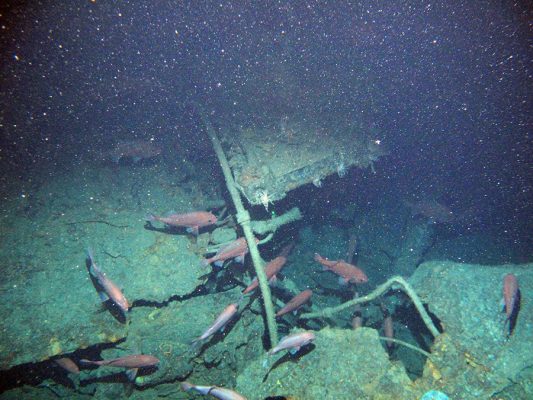
SYDNEY – Australia’s most enduring military mystery has been solved after the wreckage of the country’s first submarine was found more than a century after vanishing off Papua New Guinea’s coast, officials said on Thursday.
HMAS AE1, the first of two E Class submarines built for the Royal Australian Navy, vanished on Sept 14, 1914, near the Duke of York Islands with 35 crew members from Australia, Britain and New Zealand on board. It was the first Allied submarine loss in World War I and its disappearance marked Australia’s oldest naval mystery.
The submarine was found in more than 300-meter deep waters in the same area after an expedition – the 13th search – was launched last week using Fugro Equator, a search ship also used by Australia to hunt for missing Malaysia Airlines flight MH370.
“After 103 years, Australia’s oldest naval mystery has been solved,” Defense Minister Marise Payne told reporters.
“This is one of the most significant discoveries in Australia’s naval maritime history. … The loss of AE1 in 1914 was a tragedy for our then fledgling nation.”
Payne said she hoped the discovery would help investigators uncover what caused the submarine to sink.
The AE1 was commissioned in Portsmouth, England, in February 1914 and reached Sydney in May. It took part in operations leading to the occupation of German New Guinea.
Australia’s Chief of Navy, Vice-Admiral Tim Barrett, said the submarine was located using a range of technologies, including a magnetometer that measures magnetic disturbances, remotely operated vehicles and a deep-drop camera.
“Each time that we searched for AE1, the progression of technology has allowed for us to learn a little bit more,” he said.
Barrett said he hoped the discovery of the vessel and the lost crew would bring closure to their descendants.
“It’s sweet in the fact that we have solved the mystery that has been lingering for 103 years. It’s bitter because the purpose of this search was to find the men of AE1 and we have now done that … these people who sacrificed much … for the service of their nation,” Barrett said.
Payne said the government was working with their PNG counterparts to preserve the site and arrange for a commemoration of the sub and its crew.
The search was jointly funded by the Australia government, the Australian National Maritime Museum and two maritime history organizations.


